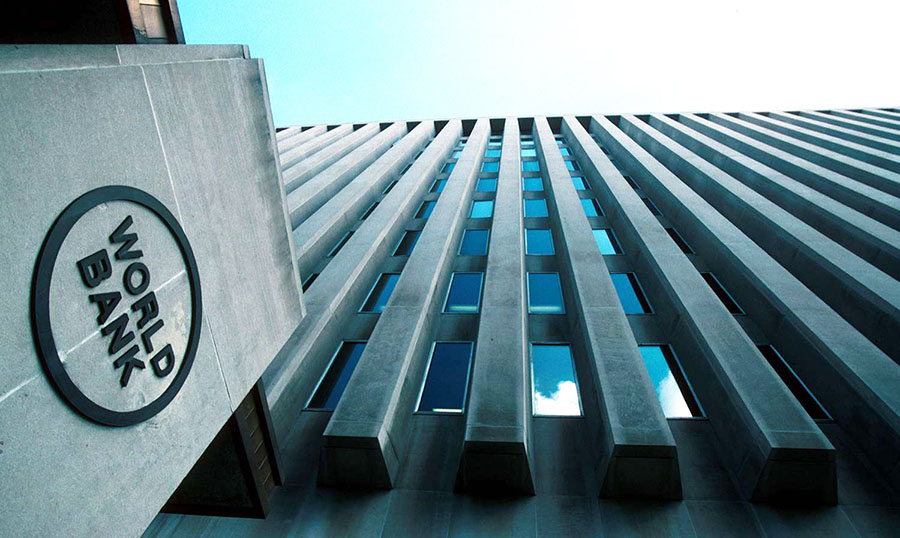
World Bank: 6 years for Sudans economy to recover if war ends
Moatinoon
The World Bank expects Sudans economy to return to its pre-war GDP level after six years if the war ends in the coming months and major structural reforms are implemented.
The latest update to the World Bank report estimates that Sudans real GDP will contract by 29.4% in 2023, followed by a 13.5% contraction in 2024, highlighting the severe disruptions to economic activity caused by the war.
According to the report, inflation rose to 170% year-on-year in 2024, from 66% in 2023. This increase was primarily attributed to the costs of housing, transportation, food, and beverages, amid a sharp decline in production.
The unemployment rate also rose from 32% in 2022 to 47% in 2024. This increase is attributed to widespread business closures, economic uncertainty, and a sharp decline in stable employment opportunities due to the severe impact of the conflict on the labor market.
The World Banks updated report, published in May 2025, indicated that Sudans fiscal challenges were worsening, with government revenues as a percentage of GDP declining from 10% in 2022 to less than 5% in 2023. Public debt remains high, leaving the country with virtually no capacity to issue new debt. Sudans external position deteriorated in 2023, driven by a deteriorating trade balance related to the conflict. The situation is expected to improve in the medium term, with increased export capacity.
The report expressed concern about rising poverty rates, with estimates indicating that the proportion of the population living on less than US2.15 a day has nearly doubled from 33% in 2022 to 71% in 2024. Poverty levels vary significantly across regions, with significant increases in poverty in the Red Sea, Kordofan, and Darfur states. It stated that regional disparities highlight the unequal distribution of resources.
It explained that weak institutions and a lack of investment in social services pose an ongoing challenge. It noted that Sudans policy and institutional performance indicators are below the average for sub-Saharan Africa and are declining, and that institutional weaknesses and inefficiencies in public sector management continue to hinder progress. It emphasized that Sudans education and healthcare systems are in dire need of support.
The report considered agriculture a key pillar of the countrys post-war recovery, as it is the backbone of the economy and a vital sector for the livelihoods and food security of the Sudanese people. The sector contributes approximately 35% of the gross domestic product (GDP) and employs more than 40% of the workforce. Its productivity has declined due to the disruption of trade routes, the displacement of farmers, the destruction of agricultural infrastructure, lack of access to financing, and climate change.
The report recommended supporting the agricultural sector for Sudans post-war economic recovery and emphasized the importance of policy support for the transition of the agricultural sector to commercialization, which would enhance the incomes of farmers and rural communities and contribute to long-term stability. It emphasized the importance of reactivating a unified economic space for the movement of goods, prioritizing the reconstruction of roads and key infrastructure to expand agricultural markets, and developing strategic public programs targeting investment and supporting farmers.
In its report, the World Bank laid out a roadmap for Sudans economic recovery and recommended resuming the Heavily Indebted Poor Countries (HIPC) Initiative to provide Sudan with substantial debt relief, allowing fiscal space for investment in productive sectors.
The report considered preventing excessive commodity subsidies essential for Sudans post-war economic recovery and long-term financial stability.
He stressed the importance of a unified exchange rate, given its critical role in promoting economic stability, facilitating the recovery of foreign trade, reducing economic distortions, enhancing transparency, boosting foreign investor confidence, and encouraging financial flows through official channels.
The report called for prioritizing the reconstruction of vital infrastructure damaged by the war to help restore basic services and facilitate the return of displaced persons. It also called for creating a more stable and investment-friendly environment that attracts local and foreign investors to key sectors that drive economic growth and sustainable development.
Among the reports recommendations are: "Removing barriers to domestic and foreign trade is essential for economic recovery. Addressing damage to communications infrastructure and reducing high import tariffs, including those resulting from exchange rate manipulation, will facilitate trade and attract investment. Fulfilling commitments to the African Continental Free Trade Area and advancing tariff liberalization with member states."
It also recommended focusing on national reconciliation and inclusive governance as essential to rebuilding trust among Sudanese communities. Truth and reconciliation commissions, community dialogues, and reintegration programmes should be given priority to address divisions.

